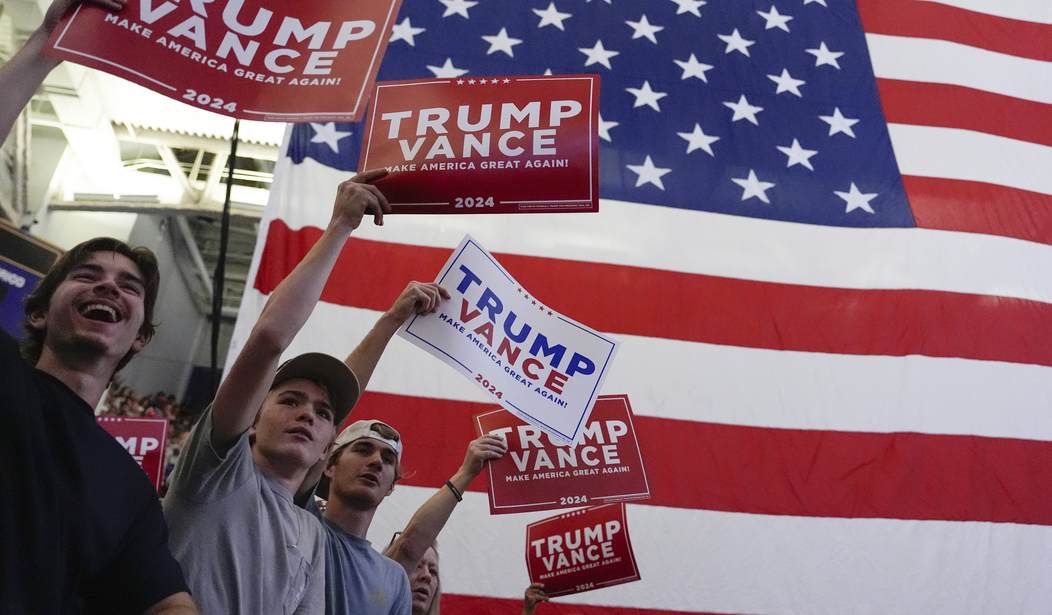We're starting to hear reports preparing us for prolonged vote counting that could have us unaware of the election victor for several days after Election Day. Last month the New York Times told us that the election results "could take a while," which raised red flags for those who remember how Trump was winning on election night and then — suddenly and somewhat suspiciously — he started losing.
Despite the efforts to condition us for a long slog of an election week where we go for days without a definitive answer, veteran political analyst Mark Halperin offers a contrasting perspective. He says, “If the early vote numbers stay the way they are — and that's a big if — we’ll almost certainly know before Election Day who’s gonna win the election.”
Halperin elaborated on the positive trend for Republicans, noting that “it’s giving us insight into a variety of factors that are accounting for a Republican overperformance by various metrics in the early voting in the battleground states.” He highlighted that the Democratic stronghold in Clark County, Nev., where Democrats usually lead significantly in early votes, has shown signs of collapse, with Republicans now gaining ground.
He cited John Ralston, a seasoned political reporter, who pointed out that “the Clark firewall… has all but collapsed.”
This decline is a huge problem for Democrats since the early vote traditionally favors them significantly.
“A few more days like this, though, and the Democratic bedwetting will reach epic proportions,” he predicted, though not without a huge caveat. “As we said yesterday, don't overread the early vote. Okay? It can change. We don't know exactly who who's casting these ballots, how they're voting, etc.”
He added that “every analyst I've talked to in the last 24 hours, including people who speak publicly, say, if this continues, Donald Trump can't lose because the Democrats can't possibly do well enough on Election Day.”
Related: Is the Left Realizing That It Was Better Off With Joe Biden as Its Candidate?
Sean Spicer also expressed optimism, pointing out that the early voting data appears “almost too good to be true” for Republicans. He highlighted that Ralston, typically not a friend to Republicans, acknowledging these trends signifies something significant.
“When someone like Ralston has to admit something like this, that’s a big deal,” Spicer said, further reinforcing the notion that Trump’s chances are improving.
Honestly, I’m not entirely convinced that the early voting numbers are going to give us much quality insight into what’s going to happen on Election Day, because there’s no pandemic this year to rally Democrats into voting early. That doesn’t mean these trends can't be encouraging.
Still, even Halperin pointed out that we should interpret early voting data cautiously. That said, the current trends indicate that Democrats may be facing challenges in key areas where they have historically performed well.
“Every state is either bad for Democrats or not good for Democrats,” Halperin concluded.
The ultimate question is whether they can make up that deficit on Election Day.
Perhaps the early voting numbers are shaping up favorably for Trump, but that's no reason to become complacent.










